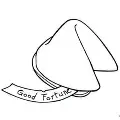By Master Trainer Tialha Nover, BCBA
Whether for budget or the need to individualize treatment, sometimes it’s better to make our own material than it is to buy it. This blog post will show you how to make DIY board games.
As a BCBA , sometimes we don’t have the budget to buy the number and type of board games that we want or need. Even when we can budget them in, it may be better to make a game ourselves. This way it’s more sustainable for the families when we leave. Making your own board game can also be a great way to individualize treatment for our learner to make a game a better fit to meet their current goals.
Tips and tricks to DIY your own board game
Fewer Spaces
Make them with fewer spaces so each game goes quicker (e.g., make a game that was 100 spaces only 25). If you are teaching good sportsmanship skills like letting someone else go first or winning/losing a game; the shorter the game the more opportunities you will have to practice these skills.
Remove Difficult Parts
Remove difficult to understand rules or parts of the game (e.g., if a game has a special rule when you draw a certain card, you can remove those cards from the deck).
Incorporate Other Skills You’re Teaching
Generalize other programs into your games by including images/objects that you are already teaching. (e.g., when deciding what colors to make your cards, use colors that you are targeting in another receptive identification program).
Use What You Have
Use whatever small toys you have around as pieces (e.g., coins, mini dinosaurs, etc.).
Laminate
Laminate (packaging tape works as a great alternative if laminating isn’t an option) your game and pieces when finished so they last.
Encourage Decorating
Draw or print out black and white versions of the games and have your learner color/decorate them.
Have Your Learners Help
For older learners you can even have them write out the name of the game on the board, the rules of the game on the back, etc.
Have your learner earn choices for color/theme/images when you’re making the game or take turns with a sibling/peer making the choices.
Add More
As your learner masters the current version of a game you can add more spaces/rules/components to the game to increase the difficulty allowing the game to grow with their skill level.
Have fun making your own individualized DIY board games for all of your learners. Here is a free printable one to get you started. Click here to download and print it!
To learn more on activities to do with kids from a behaviorally-based perspective, read these blog posts:
- Teaching Parents to Use Values-Based Behavior Strategies: From Helpless to Hero
- How to Work From Home With Kids: Learning, Leisure, and Love in the time of Coronavirus
 By using our site, you consent to our use of cookies to enhance functionality and analyze site performance.
By using our site, you consent to our use of cookies to enhance functionality and analyze site performance.